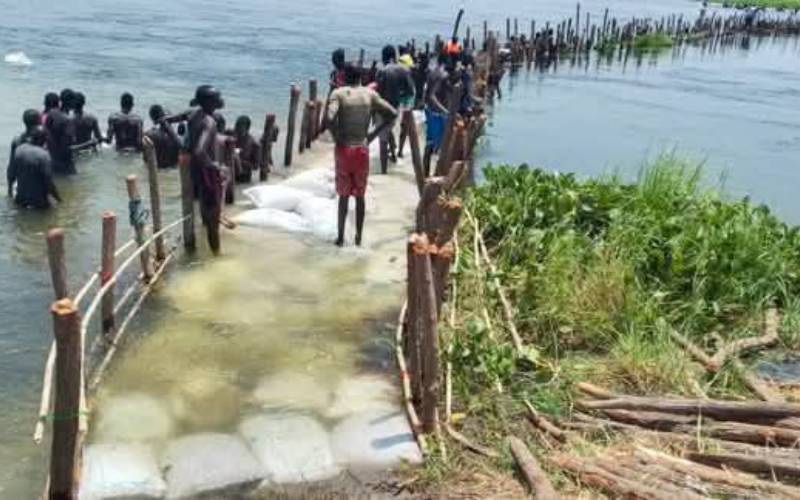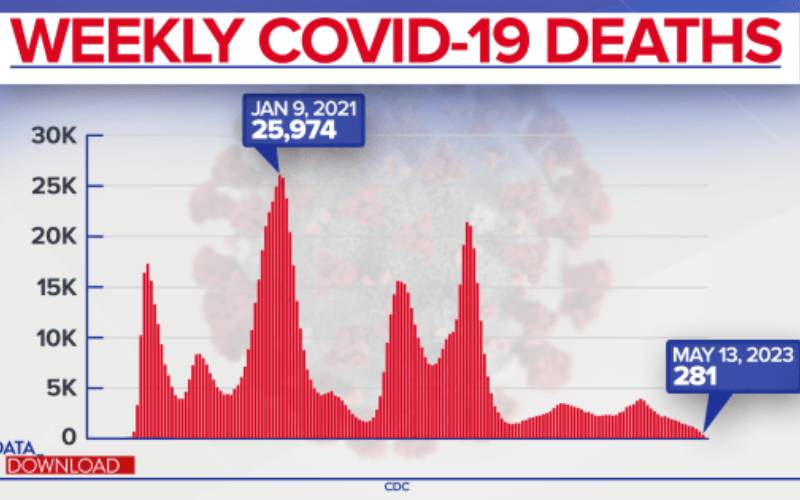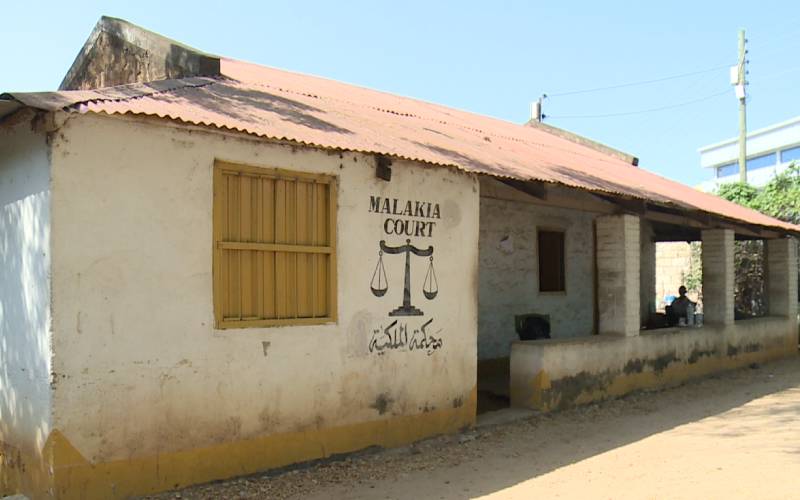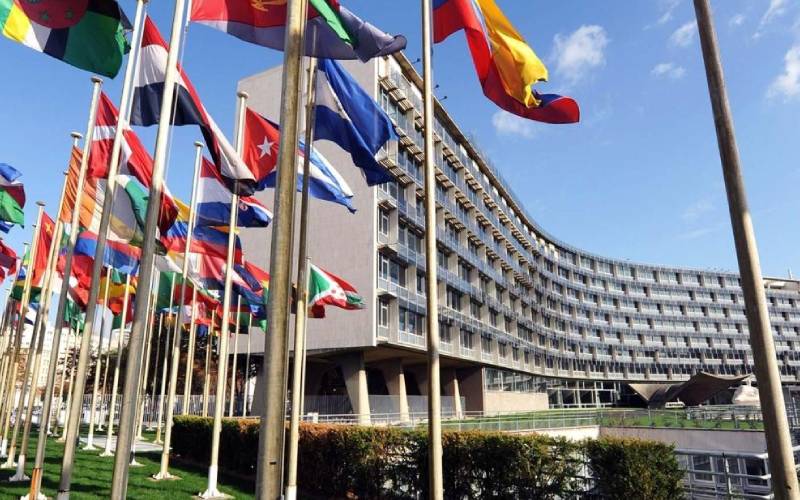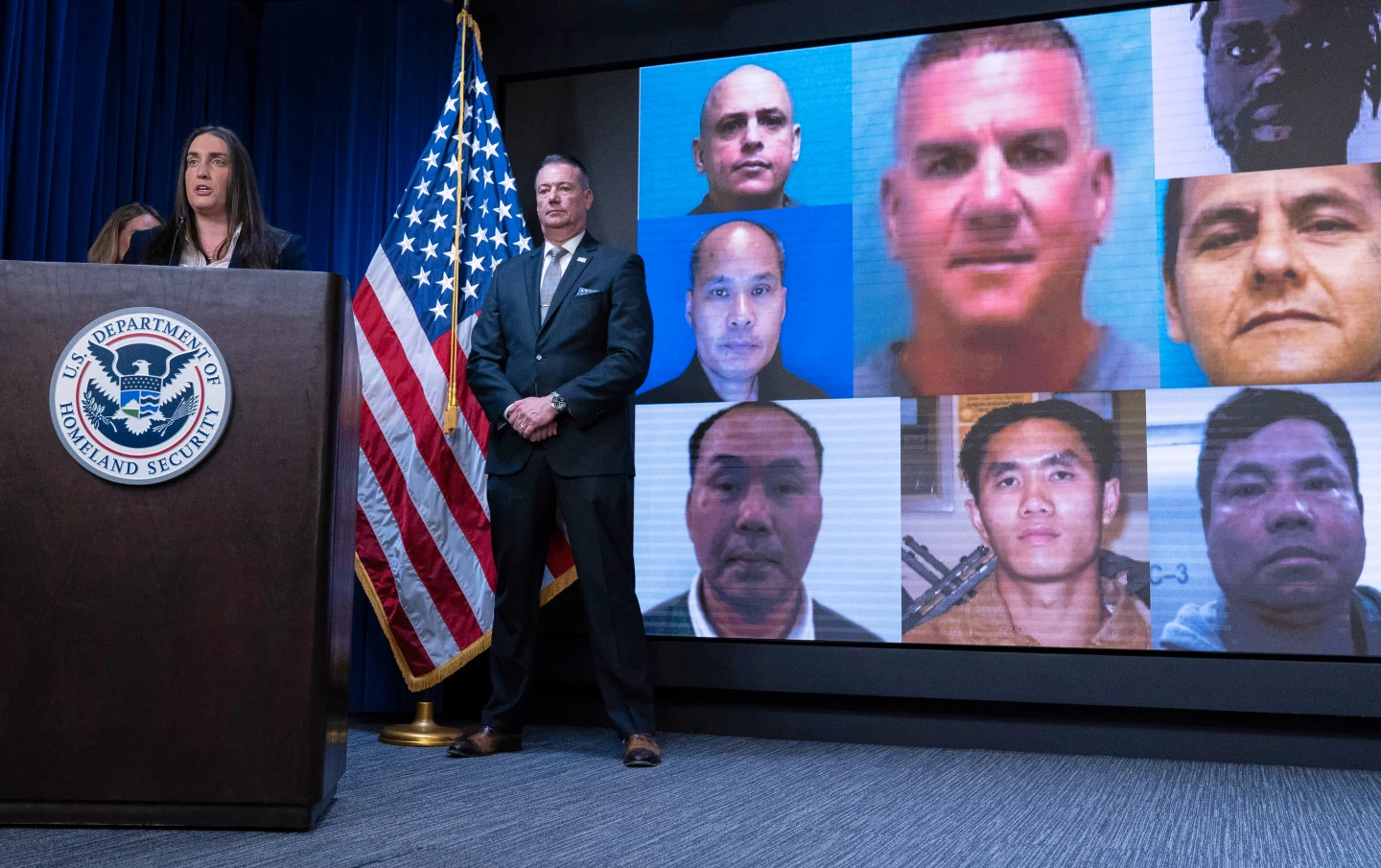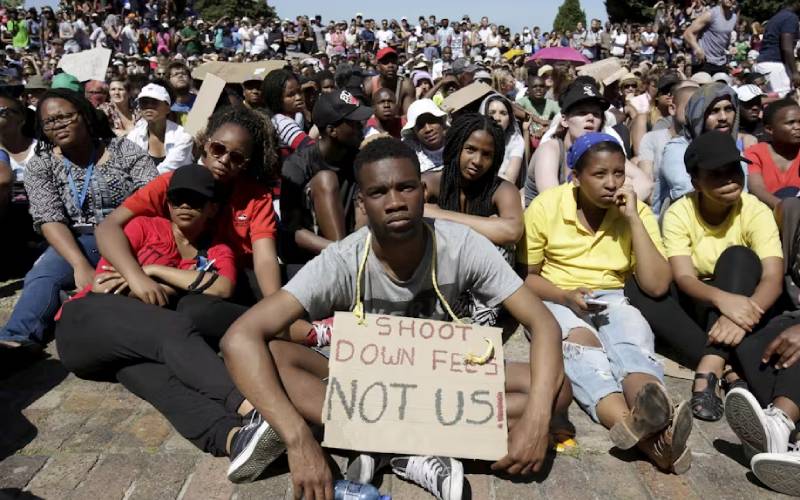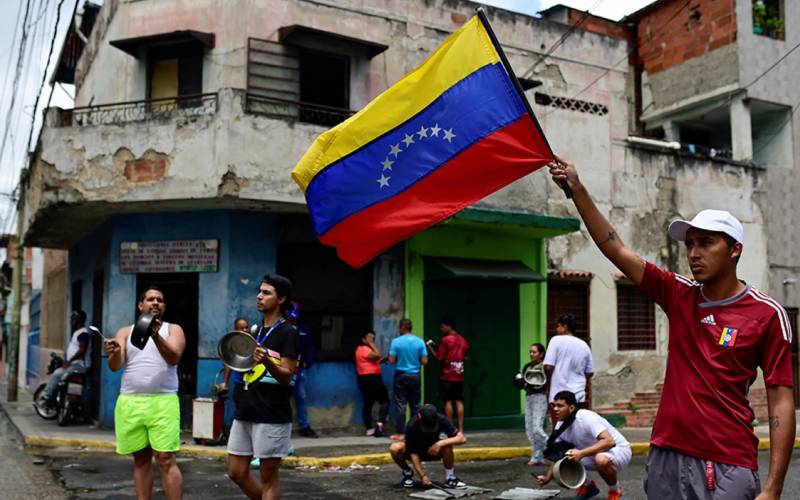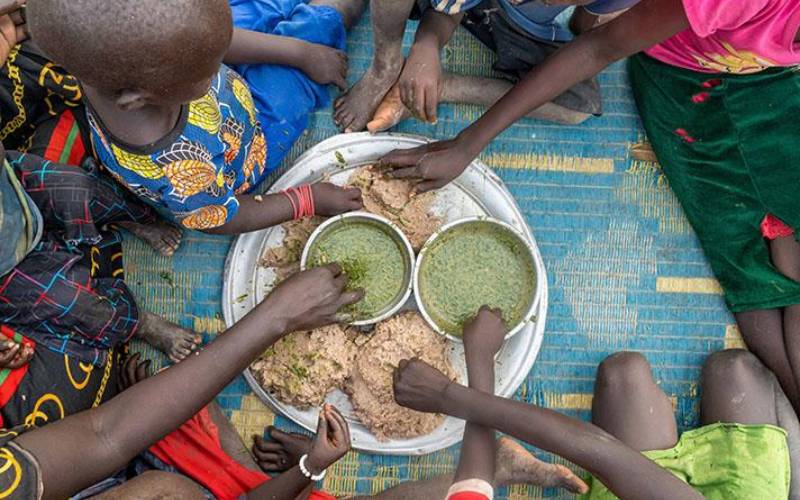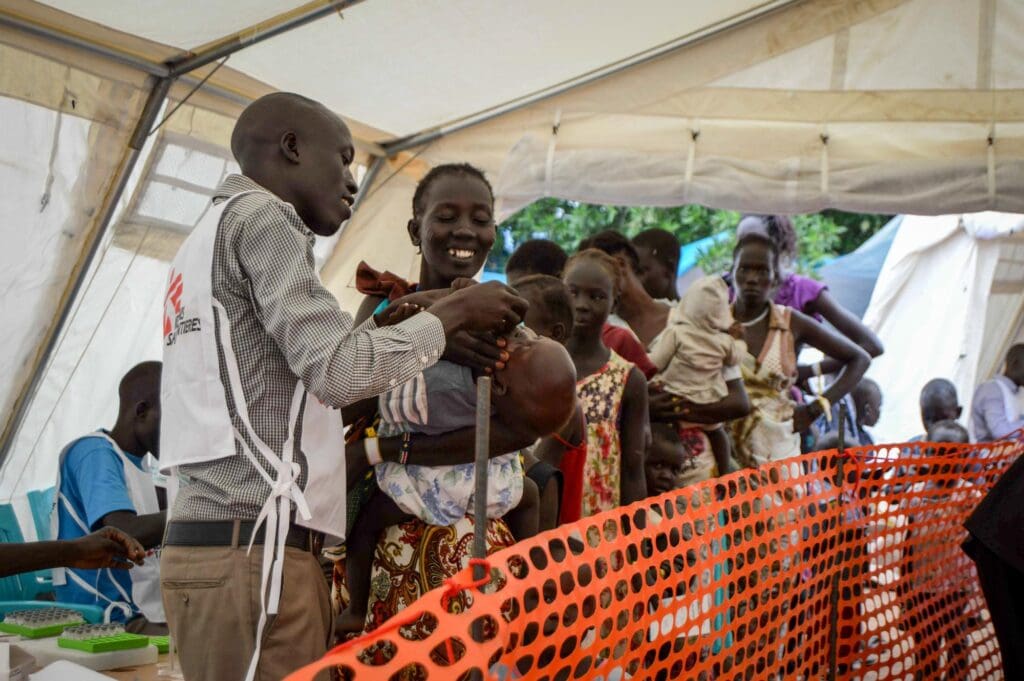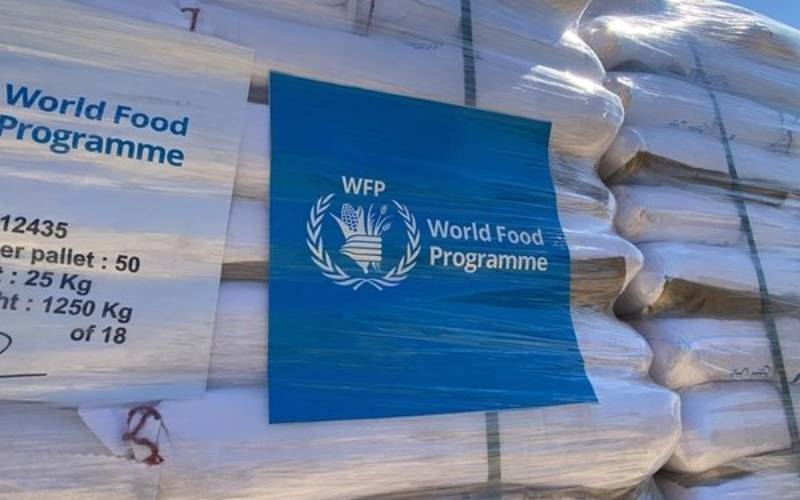Previously considered ghost areas, Twic East County, Jalle, and Baidit payams in Bor County are witnessing a simmering hope. Once submerged in floodwaters and traversed by locally made canoes, the sounds of cows mooing and goats bleating can be heard once again in these regions.
Since 2020, almost the entire population of Twic East, around 86,000 people, has been displaced. Additionally, approximately 15,000 individuals from Jalle Payam and at least 56,000 from Baidit payam in Bor County were forced to relocate to Mongalla, Bor Town, and some even to Mingkaman and Guolyar across the Nile in Lakes State.
In March 2024, the South Sudanese government launched a 21-kilometer dike project, funded by the World Bank and implemented by the World Food Programme. This road dike initiative aims to mitigate flooding in Twic, Bor, and Duk Counties, along with other counties in Jonglei State bordering the Sudd Wetlands including Akobo and Pigi Counties.
Local youth, eager to see their families return home, filled empty sacks with soil to help block water during the mabiorgol road dike construction. Mabiorgol is an area (supposedly a seasonal stream) which is seasonally covered by a mass of water when the River Nile overflows between Bor and Twic East Counties, blocking road access.
Isaac Mamer Ruk, the Jonglei State minister for Land and Housing states that the dike is progressing, with only 1.8 kilometers remaining to reach Mabiorgol seasonal stream.
“We are now left with 1.8km to reach to Mabiorgol. And then in Duk, Twic East and Bor County were also severely hit by flood. After when flood displaced thousands of people, in their home villages, the government sat and raised the concern to the UN,” Ruk stated in an exclusive interview with Informant Chronicles.
Ruk indicates that the initial construction, carried out by local youth employed in the dike work, has already redirected water into the Jonglei Canal, leaving parts of the land dry.
“The water is flowing now to the canal, and there is no more flow of the water on the side of the dike to territory of Twic East. The purpose of that dike is to allow the return of our civil population that were displaced there by the flood,” he adds.
“We need our people to go back to resettle. When we went there for assessment, at least some people are going back there with their cattle, goats and WFP is also helping those who are returning by giving some humanitarian assistance.”
In 2021, the UN reported that approximately 380,000 individuals had been impacted by floods in regions near the Nile, the Sudd Wetlands, and the Lol and Sobat rivers in South Sudan. They highlighted that Jonglei and Unity States were the hardest hit after floodwaters breached dikes.
The UN further noted that over 100,000 people displaced by the 2020 floods in Twic East County, Jonglei State, had yet to return home. Ruk asserts that once the dike is finished, the displaced populations will return and engage in mechanized farming to produce their own food.
While the WFP has been involved in this project, Ruk mentions that local communities have also been raising money to rebuild clinics and schools that were damaged by floods.
Juach Arok Juach, the Commissioner of Twic East County, notes that the population in Twic East County is steadily growing as people return to their homes.
“When mabiorgol was closed in earlier February, the return of the civil population now is increasing day by day, we used to receive the returnees every now and then,” Juach explains.
He estimates that around 300,000 hectares of land will be recovered from the floods once the Mabiorgol area is completely closed.
“We are expecting in Twic East particularly about 300,000 hectares of land that will be reclaimed in future so that the livelihoods of our people return to normal as they were,” says Juach.
On January 20, 2025, the President of the United States, Donald Trump stopped the financial support for the United States Agency for International Development (USAID), which previously contributed to global humanitarian assistance. The effects of this humanitarian crisis are already being felt, as World Food Programmes (WFP) warns that millions in South Sudan will face extreme hunger this year due to insufficient funding.
He emphasizes that once the land dries and residents come back after the road dike is completed, they will be able to grow their own food, serving as a substitute for humanitarian assistance that is currently dwindling due to donor fatigue.
“As we know very well, there is now a donors fatigue to the whole world, where there is no humanitarian support coming in. Most of the IDPs and refugees across the country are likely to return home and if they return home, they will be able to cultivate and find the land is out of water and that is what we are after as an authority,” he adds.
Both Ruk and Juach advocate for peace and harmony among the communities in Jonglei State, condemning intercommunal violence, child abductions, cattle raids, and revenge killings, as these issues deter people from returning to their homes.
Canal to stop floods
In December 2021, the South Sudan’s ministry of water resources and irrigation claimed during a council of ministers' presentation that the Jonglei Canal and dredging initiatives would benefit the people of Jonglei State by fostering peace with the neighboring Greater Pibor Administrative Area (GPAA).
In March 2022, David de Dau, a member of parliament representing Twic East County in the South Sudan's Transitional National Legislative Assembly (TNLA), rejected these claims, asserting that the digging of the Jonglei Canal was unrelated to peace and security in the state.
“In my view, it is an imaginary project and not to solve any particular issue or to bring lasting peace in the Republic of South Sudan or Jonglei in particular," Dau said as quoted by the City Review Newspaper.
The suggested initiative claimed it would promote infrastructure development, agriculture, livestock, fisheries, industry, river transport, and tourism by expanding irrigation over an area ranging from 1,000,000 to 3,000,000 hectares.
It further asserted that it would mitigate drought and flooding by enhancing agricultural production and irrigation, while also providing safe drinking water for both livestock and people.
However, Dau expressed that this was not the optimal approach to alleviate flooding, indicating that a large dyke must be constructed to effectively prevent excessive flooding.
Nonetheless, Prof. Tag El-Khazin, an Adjunct Professor at NPSIA, Carleton University, argued that dredging and the excavation of the Jonglei Canal were not viable solutions for flooding.
He suggested that building dams, dikes, and hafir (constructed water catchment basins) would be a more effective way to manage water, rather than draining the Sudd, which poses significant risks to the large population dependent on the Sudd for food sources like fish. Eventually, President Salva Kiir Mayardit halted all dredging projects until further notice.
The Jonglei Canal Project began during the Anglo-Egyptian colonial rule in Sudan, which was established in 1898. This administration acknowledged the Sudd's potential to enhance the Nile's water flow.
